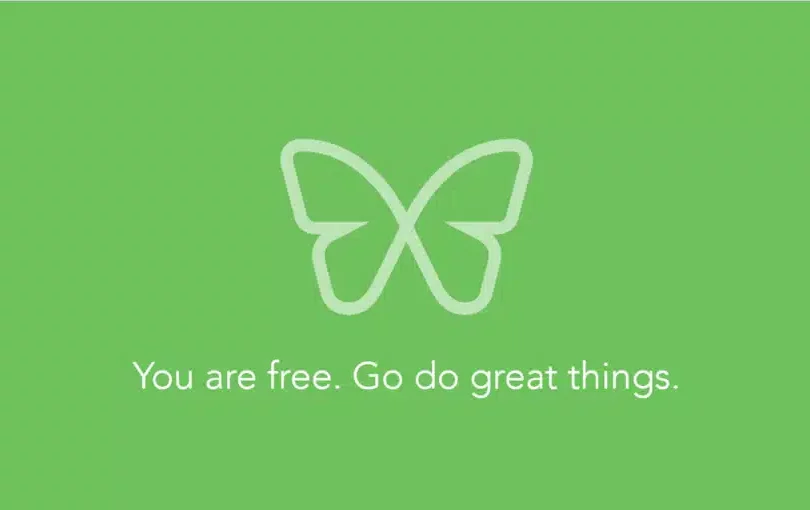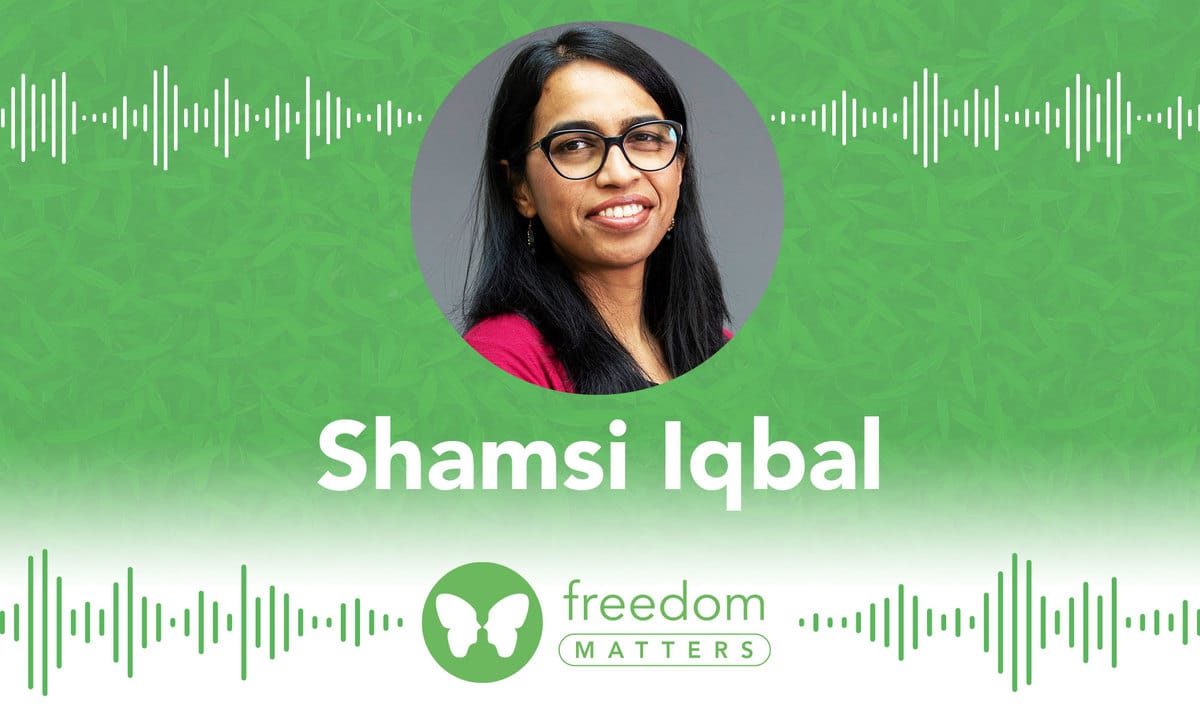Joelle Renstrom: How to Learn in a World of Tech

Joelle Renstrom: How to Learn in a World of Tech
This week we decided to sit down with Joelle Renstrom – writer and Boston University professor – to find out what it’s like to teach and learn in an age full of technology-induced distraction. Based in Somerville, MA, Renstrom teaches writing and research with a focus on robots/AI, technology, space exploration, and science fiction. Given her background, Renstrom often finds herself right in the center of the debate on the various way in which technology can distract, detract, or add value in the classroom.
What are some of the most common obstacles that prevent students from achieving the results they want?
There’s an important distinction between grades and knowledge. Grades don’t always reflect knowledge, learning, or the honing of skills–sometimes they simply reflect one cramming for an exam. I think being too obsessed with grades can prevent students from learning, as a letter becomes the endgame, rather than increased knowledge. Increasing knowledge is about what sticks–what information will a student remember beyond a certain class?
Generally, we remember information relevant to us and the world around us. Instead of memorizing a list of rhetoric devices, I’m more likely to remember rhetorical techniques if I can identify them in a politician’s speech or in a commercial. Linking information to the real world is the best way to make concepts stick.
I also think that distraction and the inability to delay gratification (the inability to make short-term sacrifices for long-term gains) prevent students from meeting their goals. Grades reflect immediate gratification–getting an A on the next test or paper, then getting an A for the semester grade. But once a student gets that A, the actual knowledge obtained can be forgotten–unless it’s clear how that information continues to be relevant.
I think being too obsessed with grades can prevent students from learning, as a letter becomes the endgame, rather than increased knowledge.
When/how can tech effectively be used in an academic setting? / When should tech not be used?
There’s no hard and fast rule on this. It depends on who you’re talking about using the tech–students or teachers or both–, the students’ age, the subject, the number of students in class, and other factors. Tech can help provide access points–different ways to getting into the material–by presenting information in other mediums.
Watching someone deliver a speech is different from reading the speech on paper in ways that are worth examining. Tech can also keep students engaged, such as with clickers that measure students’ response to questions a professor is asking. But students should take notes by hand if they can–it’s better for cognition and retention and is less distracting. I think allowing laptops in class as a general rule is a mistake, though of course there are occasions when they’re appropriate.
Have you created assignments that leverage technology and social media in such a way that they enhance learning?
Yes! I require my research students to create a Twitter account if they don’t already have one, and to follow scholars, researchers, authors, and publications relevant to their projects. This allows students to find links to new research, as well as to see what conversations these figures might be having about a given topic. I also use the 140-character limit of Twitter to force students to concisely articulate research questions and thesis statements. If they can’t Tweet their thesis, then they’re probably not clear on what they’re arguing. I have students Tweet this information to one another, and then comment on one another’s research questions and theses also via Twitter, which forces students to be clear and concise in giving feedback as well.
I also use the 140-character limit of Twitter to force students to concisely articulate research questions and thesis statements. If they can’t Tweet their thesis, then they’re probably not clear on what they’re arguing. I have students Tweet this information to one another, and then comment on one another’s research questions and theses also via Twitter, which forces students to be clear and concise in giving feedback as well.
I also use the 140-character limit of Twitter to force students to concisely articulate research questions and thesis statements. If they can’t Tweet their thesis, then they’re probably not clear on what they’re arguing.
As a professor, how does one find a balance between an outright ban of all technology in the classroom and relying on it too heavily?
It’s tricky, and I feel like I’m learning and adjusting to this all the time. I think increased awareness is the key. I talk to my students about technology and let them know that cell phones in class are my pet peeve. We talk about technology’s impact on their social lives, their academic lives, their interactions in the world. They often express dismay about this, and a desire to change their habits to reduce their screen time. This allows them–and me–to make better decisions about when to use tech and when to put it away. It’s important to note that tech is amoral and can’t make choices. We make the choices, and we choose how and when and why to use tech, which then determines whether it’s beneficial or detrimental.
What is one trait or habit you see consistently in your most successful students?
Seeking out professors in office hours to ask for help.
What is one thing students can change about their routine that will make a meaningful difference?
Students tend to focus a lot on academic or study-related routines, which are certainly important. But sometimes, students overlook the importance of other, non-academic routines. The stress of school can cause students to develop bad sleeping, eating, and exercise habits, which then negatively impact their performance in school. There are a lot of changes students can make in their daily routines that would help. My main suggestion is exercise. Given how much time students spend studying and using technology (or, unfortunately, doing both at the same time), it’s easy to forget how crucial exercising the body is. Students need to give their brains a break and focus on physical activity at least once a day. It doesn’t have to be rigorous, it doesn’t have to be at the gym–perhaps the best idea is to go outside and take a walk, run, or bike ride. Interacting with a natural environment, getting some sunlight, breathing fresh air, getting the blood pumping makes us feel better–and think better.
Given how much time students spend studying and using technology (or, unfortunately, doing both at the same time), it’s easy to forget how crucial exercising the body is. Students need to give their brains a break and focus on physical activity at least once a day.
What are some of the tools you can recommend for students?
Take advantage of campus resources. All universities have academic resource center, whether they’re for writing or study habits or for building language skills. Being proactive and seeking out help from tutors, mentors, professors, etc is a perfect example of getting out of school what one puts in.
If you could offer your younger self some advice in regard to school, what would it be?
To be more involved in extra-curricular organizations and to take more advantage of the non-academic opportunities offered.
What is something teachers and parents can be doing to help their students succeed?
Teachers and parents have fairly different roles in many ways, but one thing they can both do is to promote increased awareness about habits that impact their kids’ success in school, particularly surrounding technology.
What projects are you currently most excited about?
I’m continuing to look into ways technology affects us, especially students, as I discussed in the Aeon piece. I’ve been thinking and writing about the division between science and ethics–two fields that used to exist in a single field, natural philosophy–and what that might mean for the development of artificial intelligence, the colonization of space, and other major movements that will greatly impact our future.
 This week’s post was brought to you by Joelle Renstrom. Joelle Renstrom‘s collection of essays, Closing the Book: Travels in Life, Loss, and Literature, was published in August. She maintains an award-winning blog, Could This Happen, about the relationship between science and science fiction. She regularly writes for the Daily Beast and her other work has appeared in Slate, Cognoscenti, The Guardian, and more. She teaches writing and research at Boston University.
This week’s post was brought to you by Joelle Renstrom. Joelle Renstrom‘s collection of essays, Closing the Book: Travels in Life, Loss, and Literature, was published in August. She maintains an award-winning blog, Could This Happen, about the relationship between science and science fiction. She regularly writes for the Daily Beast and her other work has appeared in Slate, Cognoscenti, The Guardian, and more. She teaches writing and research at Boston University.



